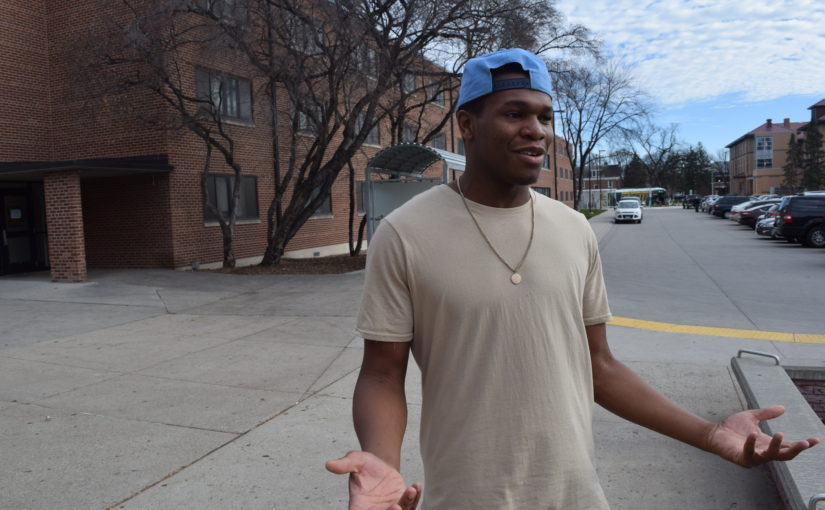Minnesota State University Moorhead, along with high schools in the Minneapolis area, have experienced adversity toward minority students. MSUM is investigating after a racist phrase was written on the whiteboard outside of an African-American student’s dorm room.
Discrete, and not so discrete, racism in predominantly white communities has increased since the election of Trump, O’Shay Neal, a senior studying human development and family science, said.
“I think that we are going backwards as a nation,” Neal said. Trump becoming president has allowed the racists to show their true colors, Neal said.
Ashley Atteberry, MSUM’s Title IX coordinator and director of student conduct and resolution, said MSUM is in support of the student. She added MSUM is actively working with its residence life to implement changes to decrease the chances of a situation like this occurring again.
“Our policy covers the protected classes as specified by the state of Minnesota,” Atteberry said. “The whiteboard being in a common area, drew the attention of many students on campus.” Atteberry said the most important thing to take from this situation is the “importance to identify that it is not acceptable.”
“Our equal rights policy protects our students but also sets expectations for students not to engage in such behavior,” Atteberry said.
Neal said he believes adversity does exist on the campus of North Dakota State. He added, “In my personal experience, it has never gone that far.”
“At a university you would think people should know better,” Neal said. “It will make the black community look at the white community in a different light, over at MSUM.” On Sunday, Neal posted on Facebook, “Y’all are probably tired of reading posts like this, so imagine how it feels to walk around in this skin every day.”
On Sunday, Neal posted on Facebook, “Y’all are probably tired of reading posts like this, so imagine how it feels to walk around in this skin every day.”
Frank Alexander, a sophomore studying biological sciences and also a graduate of Spring Lake Park High School, one of the Minnesota high schools to experience public discrimination, said during his years at Spring Lake he never felt discriminated against.
Alexander said he just doesn’t understand why people would go out of their way just to be “plain, old mean.”
“My brothers and sisters still attend that school,” Alexander said.
On NDSU’s campus, Alexander said he doesn’t feel as though he discriminated against, and in fact feels as though he is a part of a very close “black community.”
“It’s really interesting to see how we have a bond without even really knowing each other … even in the whitest college community,” Alexander said.
Heather Higgins-Dochtermann, NDSU’s institutional equity investigator, said the most important thing for NDSU students to know is, “We have an open door policy.” NDSU’s policy, regarding steps that will be taken after you file a complaint can be found online, outlines specific time periods and deadlines for the complaint process.
“Some students feel that their complaint goes into a black hole after it’s submitted, that is not true,” Higgins-Dochtermann said.
“You can file a claim anonymously if you so choose,” Higgins-Dochtermann said.
A committee meets to decide how the office should move forward after all the evidence and information has been collected.
“I think that it is important for people to educate themselves on the topic and use their privilege to stand up for the people around them,” Neal said.
“To each his own,” Alexander said. “I feel that people should stand up for others because they want to; not because we require it of them.”
“Just because you don’t see it, doesn’t mean it isn’t happening around you,” Neal said.
